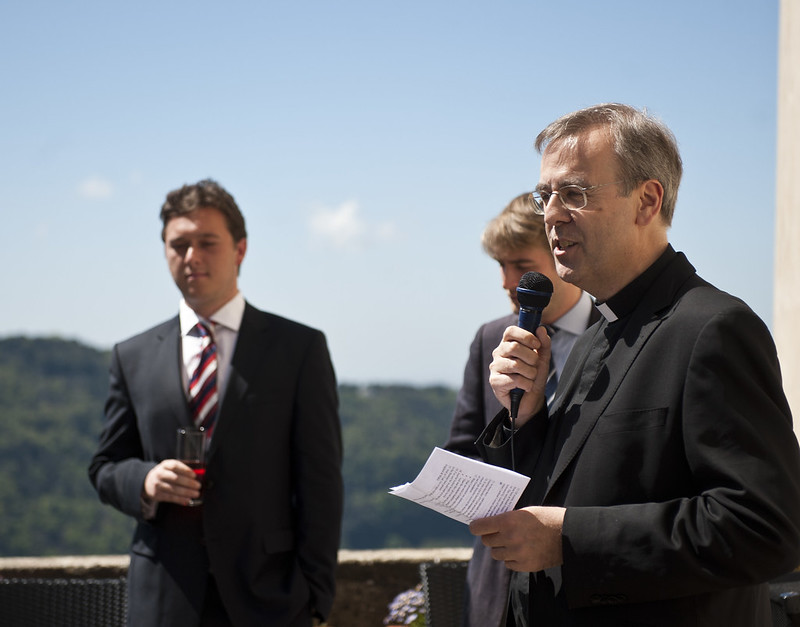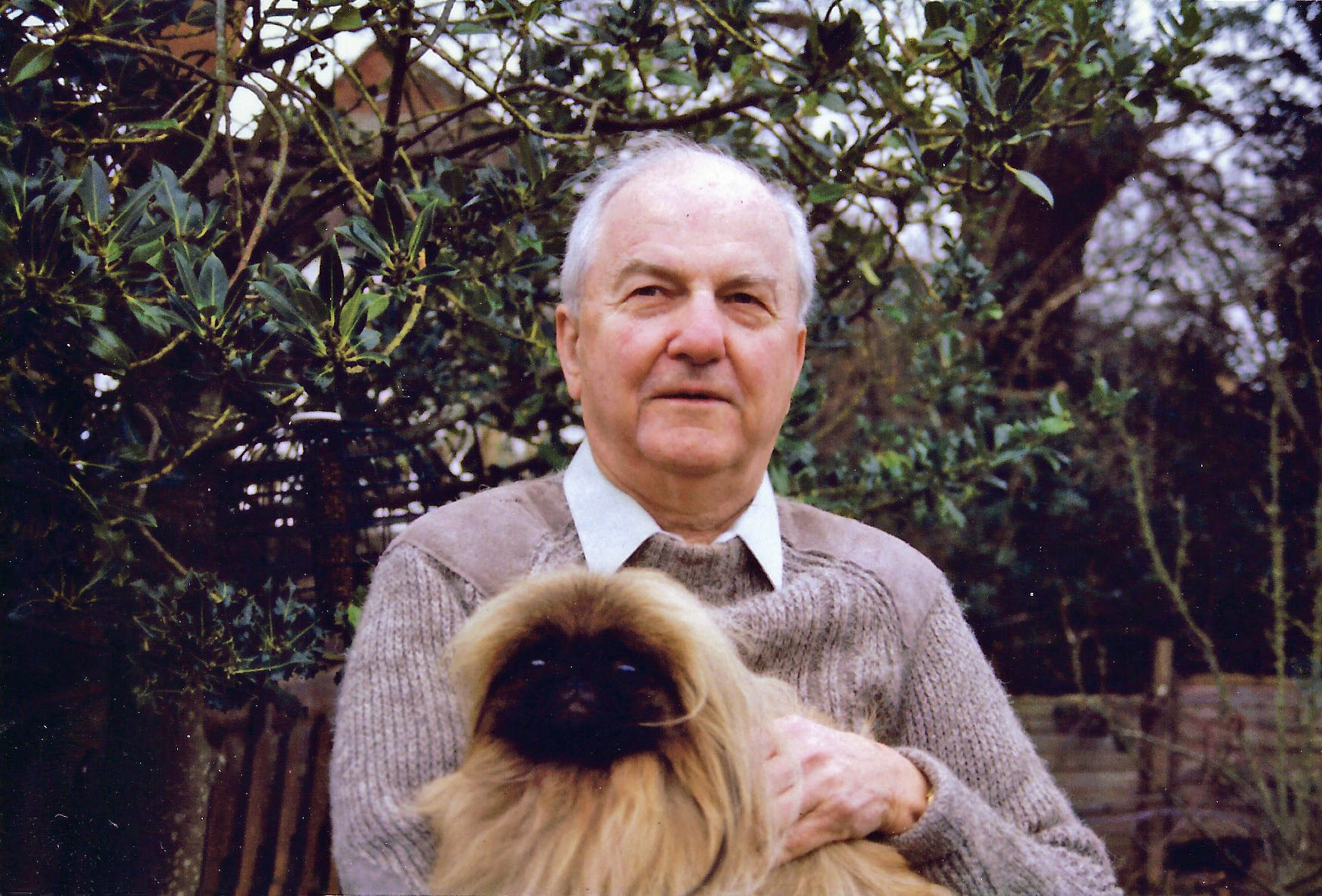Catholic environmentalists have paid tribute to the eco-theologian Dr Edward P Echlin, intellectual pioneer for the Christian environmental movement, who died on 23 December 2019, aged 89.
Ed did his theology "with his hands in the soil", as his widow Barbara put it. His greatest legacy is a new orthodoxy of the incarnation, the originality of which it is hard to overstate, even in these more creation-conscious times. The Jesus he introduced us to was not only man, not even just human, but a living being who flourished in his habitat. His incarnation reconciled the cosmic with the intimate. It lived, breathed and flourished with the Earth in which it was planted.
Ed was inspired by Pierre Teilhard de Chardin, but perhaps his closest analogue was Thomas Berry, the Passionist priest and author of The Dream of the Earth (1988) whose work is still celebrated even in the most humanistic reaches of the Green movement. But while Teilhard and Berry scanned the universe in breadth, Echlin dug the Earth in depth. What they admired, he loved.
In his attentiveness to the land, he was closer to secular writers such as Wendell Berry, Aldo Leopold and self-sufficiency writer John Seymour, a dear friend. While governments and corporations speak of "ecosystem services" and "biodiversity offsets", Ed spoke of the "earth community" and invited us to put down roots into the soil beneath our feet. He was grieved by the pervasive and tenacious heresy he found in the Church and in the spirituality "industry" – unworldly speculation which divorces earth from heaven, and fractures our understanding of who we are as human beings. His incarnational theology was not just a proposition; it was a protest.
Ed’s life was a package of complete integrity, a true labour of love. He did his theology in his garden as much as at his desk. Anyone who telephoned him at home in Bexhill, East Sussex, had to expect to wait five minutes while Barbara summoned him from pruning or picking. He was an active supporter of the Soil Association and Garden Organic, and became an authority on heritage varieties of apple, some of which he planted in his garden. They are still there, a living reproach to the supermarket monoculture of the imported Golden Delicious ("Golden Disgusting", he and John Seymour would quip).
Ed was born on 15 January 1930 in Detroit, Michigan in the United States, and entered the Society of Jesus at the age of 18. Later, teaching at John Carroll University, Cleveland, Ohio, he did much in the wake of Vatican II to kindle renewal in the American Church. He took an interest in ecumenical relations, and published his first book, The Anglican Eucharist in Ecumenical Perspective, in 1968. His 1973 book The Priest as Preacher brought preaching the Word into the foreground. He was never one to preach what he did not practise for himself, and meditation on Scripture morning by morning was staple sustenance throughout his adult life.
A further focus of his interest in this period was the revival of the permanent diaconate. He chaired a theological committee on the subject for the US Bishops, and in 1971 published his best selling book The Deacon and the Church, Past and Future. It was a characteristically leading-edge concern which prefigured his ministry of humble service to the Earth. In due course he would explore that connection for himself in The Deacon and Creation (1992).
He visited Britain, lecturing at Ushaw College in Durham and the Anglican theological college in Lincoln. Life took an unexpected turn. He met Barbara, they married in 1974, and so he put down roots on English soil, moving to Ripon. He continued an academic career, as Honorary Research Fellow in Theology, University College of Trinity and All Saints, Leeds; and Visiting Scholar at Sarum College, Salisbury.
It was while at Ripon that he started mapping out an ecological theology. In the 1980s it was hardly a wise career move; it was a choice that chose him. As a "voice in the wilderness" his Jesuit formation came to serve him well, fostering a work ethic that was self-giving, contemplative, resourceful and resilient. Here he gathered the material for his manifesto Earth Spirituality: Jesus at the Centre (John Hunt, 1999), which traces his ecological awakening to childhood holidays in the north Michigan lakeland.
After retiring with Barbara to Bexhill he published his most systematic book The Cosmic Circle: Jesus and Ecology, followed by Climate and Christ: a prophetic alternative (Columba Press, 2004 and 2010 respectively). He contributed to journals such as The Month, Doctrine and Life, New Blackfriars, Pastoral Review and Renew, and was regularly quoted as a pundit by The Catholic Universe. His last article will be published in the January 2020 issue of The Newman.
Ed was equally at home among activists. He and Barbara joined Christian Ecology Link (now Green Christian), of which they founded a local group in Ripon in 1987. He took an encouraging interest in the charity’s work, accompanying Barbara who for many years was its tireless Secretary. He was well known to members of religious communities, in the National Justice and Peace Network, Catholics for a Changing Church and other groups who engaged him as a speaker. For many years he was chair of Catholic Concern for Animals (formerly Catholic Study Circle for Animal Welfare).
By 2015, when Laudato Si’ grafted integral ecology into the Church’s social doctrine, Ed had been teaching it, by word and deed, for decades. Perhaps he is at last being recalled from the wilderness: writing from Dublin, Mgr Dermot Lane recently commented to him, "I keep coming across your name in foot-notes, referring to your foundational work on The Cosmic Circle and other works on Creation." If Ed’s time is indeed finally coming, there is hope, even today when time to heed his words is perilously short.
Of course, to the Jesuit in him any such impact would have been a matter of indifference. He just did what he did for the greater glory of God. He returns to the Earth he loved: there may he rest in peace. In such time as we have left, his work must now be ours.
Paul Bodenham was Chair of Green Christian 2004-2019



 Loading ...
Loading ...
What do you think?
You can post as a subscriber user ...
User comments (0)